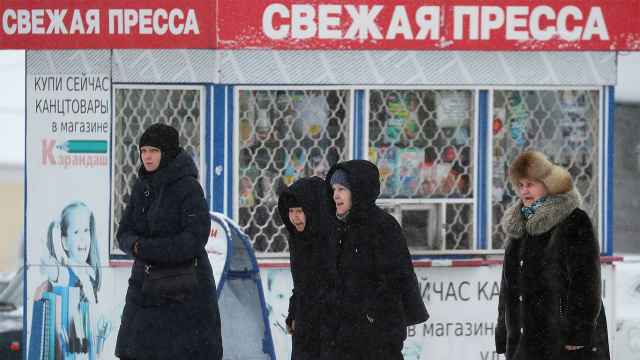Updates with Timchenko comments
Russia's General Prosecutor's Office has added the independent news outlet Meduza to the country's list of “undesirable” organizations, a sanction designed to force entities to disband and which puts its staff and financial donors at risk of significant jail time.
The General Prosecutor's Office said on Thursday that it believed the activities of Meduza "constitute a threat to the foundation of the constitutional order and security of the Russian Federation."
One of the most popular independent Russian-language news websites, Meduza was founded in the Latvian capital Riga in 2014 by a collective of former employees at the popular Russian news website Lenta.ru.
The journalists who founded Meduza had all just resigned en masse following a decision by Lenta.ru's Kremlin-linked billionaire owner Alexander Mamut to fire editor-in-chief Galina Timchenko.
Timchenko, who remains Meduza's CEO almost a decade later, told The Moscow Times on Thursday that the decision “was not completely unexpected.”
“Since the start of the war [in Ukraine] we knew it was just a matter of time. So we were prepared and it has not frightened us.”
“Our main concern is our readers. People can still read Meduza, we’ll try to explain this to our audience, but publishing links and comments might be considered administrative offenses and this can affect our readers who remain in Russia,” Timchenko said, adding: “We won’t give up.”
Meduza's legal status in Russia was already complicated after the Russian Justice Ministry labeled it a "foreign agent" in April 2021.
In July, Yevgeny Prigozhin, founder of the Wagner mercenary group, requested that Meduza be labeled an undesirable organization immediately after it published an investigation into the activities of his mercenary group, which Prigozhin described as "provocation disguised as pacifism."
The “undesirable organization” label requires an organization to cease all operations in Russia and allows its funds and assets in the country to be confiscated.
Russians are prohibited from participating in the work of "undesirable organizations," even outside Russia. The penalty for violation is up to four years imprisonment.
Financial contributions to such organizations also carry a penalty of up to five years in prison.
In addition, distributing or referring to materials published by an "undesirable organization" is a criminal offense and can lead to legal consequences, including the blocking of any media outlet citing an "undesirable organization" in Russia.
“The Russian security services are trying to make it difficult for the publication to communicate with their sources. They are trying to intimidate them in this way," political consultant and former Putin speech writer Abbas Gallyamov told The Moscow Times on Thursday, adding that there were "too many leaks through Meduza that were disadvantageous to Russian hawks.”
A Message from The Moscow Times:
Dear readers,
We are facing unprecedented challenges. Russia's Prosecutor General's Office has designated The Moscow Times as an "undesirable" organization, criminalizing our work and putting our staff at risk of prosecution. This follows our earlier unjust labeling as a "foreign agent."
These actions are direct attempts to silence independent journalism in Russia. The authorities claim our work "discredits the decisions of the Russian leadership." We see things differently: we strive to provide accurate, unbiased reporting on Russia.
We, the journalists of The Moscow Times, refuse to be silenced. But to continue our work, we need your help.
Your support, no matter how small, makes a world of difference. If you can, please support us monthly starting from just $2. It's quick to set up, and every contribution makes a significant impact.
By supporting The Moscow Times, you're defending open, independent journalism in the face of repression. Thank you for standing with us.
Remind me later.






